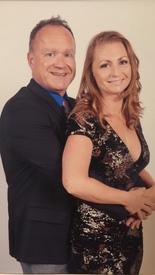Since we don't believe conventional wisdom on what to eat, what else do we question?

parkdad73
Posts: 88 Member
What should we believe is the best method for exercise? For weight training? Should we work out everyday for afterburn or only a couple days a week and rest between? A lot of cardio or little? Reps to muscle failure or to a certain set number? High intensity with short rest periods or steady pace with high intensity bursts? What exercises are benefitical and which are a waste of time?
With everyone out there who ever lifted a barbell or stepped on a treadmill thinking they are an expert, how much of it is legit and how much of it is parroting what has been sold to them much like the doctors and nutritionists have been on diet?
With everyone out there who ever lifted a barbell or stepped on a treadmill thinking they are an expert, how much of it is legit and how much of it is parroting what has been sold to them much like the doctors and nutritionists have been on diet?
0
Replies
-
Wow that's a loaded question
 . I can say I used to argue with my boyfriend about polish sausage being unhealthy for him. His response was always "my grandfather are polish sausage every day of his life and lived to near 80 years old with no problems" he was also a farmer most of his life making him naturally active, never did an organized workout a day in his life. I used to think, well maybe he would've loved longer if he ate better, but since I've found this group, I'm starting to think he's right. 0
. I can say I used to argue with my boyfriend about polish sausage being unhealthy for him. His response was always "my grandfather are polish sausage every day of his life and lived to near 80 years old with no problems" he was also a farmer most of his life making him naturally active, never did an organized workout a day in his life. I used to think, well maybe he would've loved longer if he ate better, but since I've found this group, I'm starting to think he's right. 0 -
I question everything. Doctors tell me one thing, I experience something else. They said I can't lift weights, I do it three times a week and feel better than I have in three years. Then I read that I should lift heavy, then the RT tells me no, I should do more reps. It's all very confusing, even just the exercise part of it. Luckily, my Doctors and most people I have told about my woe are in agreement that this is best for me. My cardiologist being the brainwashed hold out on that one. I guess we just have to find what works for ourselves.0
-
I limit my exercise sessions to under 1 hour. This is based on the idea that we can exhaust our antioxidants in about that amount of time, and after that we start accumulating oxidative damage to our cells.
If you want an interesting approach to exercise, try Bailor's book. He says no more than 20 minutes 1-2X per week, and suggests specific types of exercises to stimulate muscle growth (eccentric muscle resistance).0 -
The science suggests that higher intensity and shorter intervals are better all around. I'm on my phone right now, so don't have links and such, but the general consensus leans that direction.
Steady state endurance cardio releases cortisol after about half an hour, and the longer you go, the more catabolism your body does. A good illustration of this is in that image of a bunch of different Olympic athletes, showing their physique. The long distance and marathon runners tend to be skin and bones, while the sprinters and triathletes tend to have more and better muscle development.
It's a bit of an extreme example, but injuries and things like heart attacks are rather common among distance running groups, even below Olympic level, especially as you get into and beyond marathon levels. After about 5-10k, you start getting diminishing returns when it comes to health, as cortisol starts entering the picture and increasing in level.
Weight lifting is a little more hazy, though. The differences are more subtle, and depend more on your goals. The cortisol issue still applies, but weight vs reps depends more on your goals. The general consensus is leaning toward favoring low reps and higher weights for most health things, because of the effect it has on insulin and other hormones. Again, though, you get diminishing returns after a point, and there comes a point when lifting a particular weight has more risk than benefit (ie - the bodybuilders aren't necessarily any more healthy than an amateur weight lifter).
When looked at it from and ancestral point of view, the above kind of makes sense - we do a ton of walking, we sprint sometimes, and have to lift really heavy things occasionally. It makes sense, then, that routines that mimic that pattern are most beneficial, when looked at from there.0 -
Not sure I'd worry about short-term squirts of cortisol. Cortisol signals the liver to break down glycogen and increase blood sugar, which is a normal response to exercise.0
-
Not sure I'd worry about short-term squirts of cortisol. Cortisol signals the liver to break down glycogen and increase blood sugar, which is a normal response to exercise.
If you're talking one run in isolation, sure. When you're talking a 2 hour workout, 5 or more days per week (which is typical in running circles and conventional workout routines), especially in addition to the chronic stresses of modern life, you've got a whole different animal, because now you're talking chronically elevated levels.
0 -
In Phinney & Volek's book on Low Carb for Performance, page 40, they describe what is important for OBESE people to know. That more than one hour of endurance exercise--endurance being what is your limit at 200, 270, or 350+lbs, etc.
in OVER 1 hour of hard work obese people LOWERED their resting fat burning metabolism by 5-15%…the message is DO exercise BUT limit it to shorter 30-40 minute intervals a day… a 60+minutes push may be actually slowing down progress.
My dietitian in weight group didn't believe me, she takes the guys on a fast one hour huff and puff before each meeting. I refuse to walk on concrete, soaking up car fumes and avoiding potheads behind the wheel at crossings(glazed eyes, sappy grin.."whoa, dude, you ran over that fat chick..giggle..fun living in the Emerald triangle of the nation) so I have to bring the book next time.
the authors say telling morbidly obese people to act like athletes to lose weight ( the shame factor again) is like selling them the Brooklyn Bridge…pointless.
to answer Parkdad73..yes, looking at all known 'Truths'…gotta do it.
Weighted anerobics-weightlifing, unweighted-lunges, pull-ups- for the obese, provide <3min burn not requiring oxygen and accomplish much as well. I am wondering where there is research to show weights can help reduce flab and build muscle as fat is lost? Resistance bands, 2 lb weights can easily be used by obese people while sitting watching TV, talking, etc. I'd agree to 4x-6x a day brief anaerobic exercise routine to build muscle and avoid excess skin.0 -
i used to do endurance running. sometimes i miss the endorphin high. my body did not thank me, however.
i feel best doing short, higher intensity workouts (interspersed with rest breaks) a few times per week (kettlebells or bodyweight), walking 4-5 days a week, and a few days of yoga.
0 -
The thing is, in this day and age we are simply don't get enough physical activities. Desk jobs, video games, you name it. Back in the days, as kids, we were constantly outside doing stuff. We walked a lot, rode bikes, ran around until cows came home.
Today we are very much stuck living sedentary lifestyle and eating junk away. With that said, I do work out at least 5 times a week, nothing fancy, all at home doing variety of exercises from cardio, to HIIT, to yoga and light weights. This is to compensate for being on the couch and sitting at the computer for hours. They said you should do an hour or physical activities for every hour you sit around watching tv. It is what it is. I'm not running marathons or doing heavy lifting, but for what I do it keeps me alive and feeling good.0 -
Personally I feel that workouts need to be practical, I'm not going to work to build up my arms when I mostly need core/back and leg strength. When I workout it's mostly walking and bodyweight. If it was good enough for my parents and grandparents to do the same things Im doing then it's good enough for me.0
-
Pretty good documentary from the BBC (same guy that did the famous fasting documentary):
0 -
I found this yesterday and found it interesting mobile.nytimes.com/blogs/well/2013/05/09/the-scientific-7-minute-workout/
Personally, I like to do 30 mins on my treadmill a couple of times a week. I alternate jogging and walking for most of it but throw in a couple of nearly flat out sprints towards the end. I also enjoy strength training, but that's at home and a cross between body-weight exercises such as the one linked above, and free dumbbell work. I've only got dumbbells up to 5 kgs / 11 lbs each though.0 -
It depends on context and there is no one size fits all diet,workout or program. Everyone is different, science is incomplete at best and useless at worst when it comes to fitness and health. I don't believe in most of the stuff, they say is true. I got best results using common sense and experimentation rather than going and searching for some study. Look inwards, understand your body, there are too many variations from person to person to claim something will work.
One thing about human body is it adapts, I ran a marathon and an Ultra 6 days later with out training or running for 6 months. Its possible because I know my body better than any one. My body uses fat oxidation at higher intensity levels, which means no cortisol or lactic acid for producing ATP (energy). Thus I can recover faster, it took me a day to recover from running a Marathon and I could run an ultra six days later. It takes time for your body to adapt and if you let it adapt, great things happen. Human species survived thousands of years because Human body can adapt to any condition. People walked and ran for thousands of years but they weren't generation of sissies who needed to read a study or a book on how to walk or run 5 miles.
I don't have a legs of marathon runner, mine are more like a sprinter or a power lifter. Does it mean I can't do long distance running or is it bad to run long distances? No. People say you gain weight because you are sedentary, but it depends on lot of factors. I can sit in bed all day, eat bacon, drink quarts of heavy cream while lose 2 lbs / week averaging 2500 cals and under 1000 steps per day. I see my friends who do 10 K steps/day, eat a 1400 cal and not lose anything for weeks. What works for me may not work for you, what works for you may not work for me. If you want results, listen to your body, experiment and figure out what works for you. If you want to preach, then read blogs and studies with not much results to show for in real life.
Back in December 2013 when I started low carb, I was 55 lbs over weight, couldn't run 1/4 mile with out huffing and puffing. Heck, I couldn't even do 4 pushups in a minute. It doesn't matter where you are now, keep getting better and as the body adapts wonderful things will happen. Don't try to overthink and do what is working for you, if something is not working change things.0 -
I question everything!!
 And I do mean everything. 0
And I do mean everything. 0 -
What should we believe is the best method for exercise?
I think we should question the question. Please don't become a True Believer in the One Best Method!
Find what works for you and your objectives and your lifestyle and your preferences. And even then keep mixing up your routine and trying different things.
An athlete training for peak fitness will have a very different routine than an office worker who just wants a few practical practices for staying healthy.0 -
All studies are consciously narrow minded. We are all different, including the ratio of muscle fibers you have. The ratio impacts what kind of exercise/sports you as an individual will respond better to and which protocols you should follow. Play to your strengths or improve your weaknesses? It depends on your goals.
You can now buy a report on your muscle fiber ratios and dna makeup:
I think it's very simple, our bodies gravitate towards the kind of exercise the muscle fibers that are dominant. Yes, there are exceptions.
In this article Menno Henselman discusses amongst other things why most women «like» cardio. It was an interesting read.
Back to point. Medical studies are only providing data for the subset that was studied with those specific variables. Making general assumptions based on a very narrow scope invites all kinds of confusion and disconnect between correlations.
This claim that «cardio» is so dangerous and catabolic defies logic and is taken out of context. We're doing «cardio» in some form all day long, from the moment we get out of bed.
I've noobgained muscle the last months mostly walking... so IME cardio is NOT catabolic. Just to brag a bit: Can even fit into a an all-time low size, XS in bikini bottom, due to more butt muscles, while maintaining scale weight and measurements. Thx, cardio!
To support my notion that cardio is not catabolic. It's interesting that in a study of world champion medalists XC skiers and biathlon pro athletes, they did 90% of their training doing LIT. If «cardio» was as catabolic as some people believe it to be, any endurance sport athlete would've withered away long ago.
From the conclusion of the study from Plos One:These data show that winning an international title in XC skiing or biathlon requires a training load of ~800 h/500 sessions.year−1, of which ~500 h is executed as sport-specific movement patterns. Endurance training time for these athletes was distributed as approximately 90% LIT and 10% HIT, equal to a ~80/20% SG distribution.
Can cardio become catabolic under certain circumstances? Sure, overtrain and undereat, specifically not eating enough protein. The effects of cortisol is too complex to go into here. Too many if, P, then Q. However, I'd say that reducing the stress from life in general, aka the majority of your day is probably more effective on elevated cortisol levels than what 1-2 hrs "cardio" induce. The body can go through stress responses, without you knowing it. In other words, being a constant worrier is probably far worse for your health than cortisol due to exercise.
I second the opinions from above posters: Find what works for YOU. As in diets, there's no one size fits all for athletic performance. As amateurs we have good margins for experimenting to reach our goals.
TRIAL AND ERROR FTW
Edit: I forgot this summary 5 things I learned about training through reading research by Bret Contreras where #2 is that "Cycling increases Quad Hypertrophy". When you think of it...it's only natural that quads get bigger by high resistance power pedalling since it's the main muscle engaged. IMO a lot in the "fitness industry" is about complexing things that don't need overthinking.0 -
I don't know what to make about what the experts say, but don't spend too much time worrying about all the contradictions. I do read some of the studies, always searching for wisdom that takes me away from conventional wisdom, since I find that the health experts have led us astray for decades. I am more inclined to do what feels best for me.
Since beginning my new quest for health a couple of years ago, I have found such freedom in escaping from simple conventions, such as not eating at certain times of day, just because it was " lunch time" or whatever. It was huge for me to question breaking from the "three meals per day" mentality. I now eat when hungry....it seems like a no-brainer.....but how many people following CW eat just out of habit or boredom ?
In my previous life, I would walk or jog for a couple of hours daily in order to lose weight and stay fit. I still walk, but my walks are more leisurely, and are more like a walking meditation which helps center me, rather than a necessity to get "x" amount of miles in per day within a certain time frame. But I now also view many ordinary aspects of my daily life as exercise. Activities such as performing heavy chores around the house, or digging up the soil in my garden, or shoveling snow in the winter. I kind of look forward to those activities without the stress of having to schedule in workout times around my office schedule. Any opportunity to get up from behind the computer and move my body somehow is a good thing. I have some wood in the backyard that needs chopping.... Sounds like exercise to me.0 -
Kitnthecat wrote: »IBut I now also view many ordinary aspects of my daily life as exercise. Activities such as performing heavy chores around the house, or digging up the soil in my garden, or shoveling snow in the winter. I kind of look forward to those activities without the stress of having to schedule in workout times around my office schedule. Any opportunity to get up from behind the computer and move my body somehow is a good thing. I have some wood in the backyard that needs chopping.... Sounds like exercise to me.
Agreed...100%!!! Physical movement/exertion that is done for other productive reasons besides just moving to move...that is my idea of exercise well done. I burned more calories mowing my overgrown lawn yesterday than I ever would've peddling my recumbent bike. ;-)0 -
I guess it is just over time, especially when it feels like I'm not seeing results, that I start to question if there is a better way than what I'm doing. Considering how LC was such a radical idea to what I had been doing and how well it worked I have a nagging feeling there is some other truth for fitness.
I just get frustrated that we can build an artificial heart but can't get a consensus on what is the best health wise. I think that someday the scientists will figure out there are several different cellular body types (similar to the MBTI for personalities) and what works for each one.
I want to make sure I'm not spinning my wheels when it comes to exercise.0 -
There are genetic tests that will predict how well exercise works for you:
http://well.blogs.nytimes.com/2012/10/10/are-you-likely-to-respond-to-exercise/?_r=00 -
I guess it is just over time, especially when it feels like I'm not seeing results, that I start to question if there is a better way than what I'm doing. Considering how LC was such a radical idea to what I had been doing and how well it worked I have a nagging feeling there is some other truth for fitness.
I just get frustrated that we can build an artificial heart but can't get a consensus on what is the best health wise. I think that someday the scientists will figure out there are several different cellular body types (similar to the MBTI for personalities) and what works for each one.
I want to make sure I'm not spinning my wheels when it comes to exercise.
Don't do exercise for weight loss. Exercise is only a tiny, tiny fraction of the equation when it comes to weight loss.
Instead, do exercise for other reasons -- like enjoyment, strength, or cardiological health. For example, I love going on walks and will do that every day the weather doesn't suck (and even some days when it does). My FitBit has been telling me that on the bigger walking days, I can get upwards of 20,000 steps. I also enjoy lifting, and have been using it for physical therapy for the back issues I've been having. Both are often followed up by a short Yoga session for stretching. I walk so much in large part to keep me sane (I spend a stupid amount of my days in the same room), and I lift, because I like the strength it provides. For both, any effect on weight loss and hormonal changes are welcome side effects of the activity.
That's ultimately what matters for most people -- what fits into your life, and what contributes to your non-weight-related goals? For most people, it's not until you're talking beyond 5 days a week or into multiple intense workouts per day, that the health improvements start diminishing (and in which case, you're getting into doing something because you enjoy doing it, and not for health benefits).
If you're concerned with the health benefits and the point of diminishing returns on a given activity, then look to the studies, as well as statistics of things like injuries or deaths per level of what it is you're doing. At what point do heart attacks or injuries start reaching statistical significance for that activity, for example. At what point are you likely to reach your natural peak muscle capacity? Studies will help guide you on these things, and your own "n=1" experimentation will give you your individual amounts.0 -
I don't think there is anything wrong with trying something new. However, I say keep it simple, keep it practical, and stick with something you like doing. I stick with what has gotten me results over and over again. 30 minutes of cardio and 20 to 30 minutes of weights alternating days between upper and lower body. If it seems simple it's b/c it is simple.0
-
I say keep it fun and balance the cardio with the weight bearing exercises.0
This discussion has been closed.
















